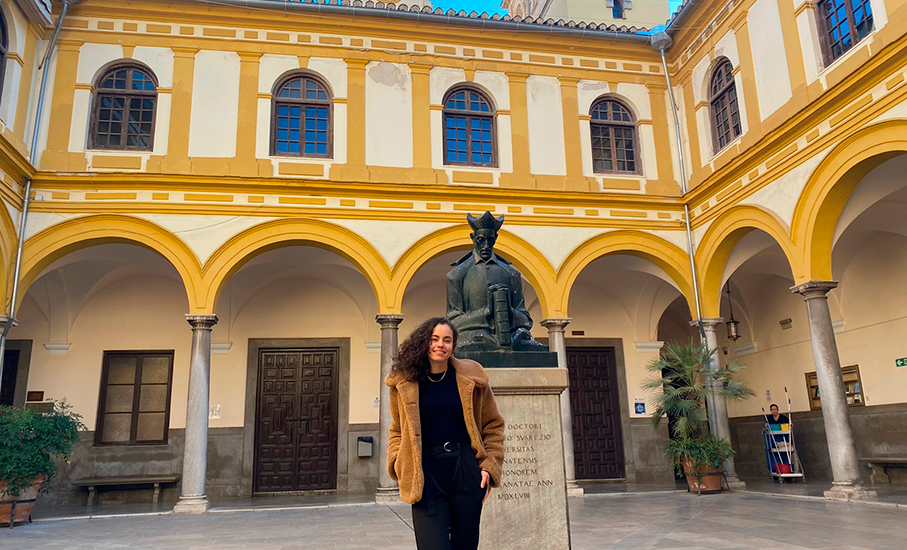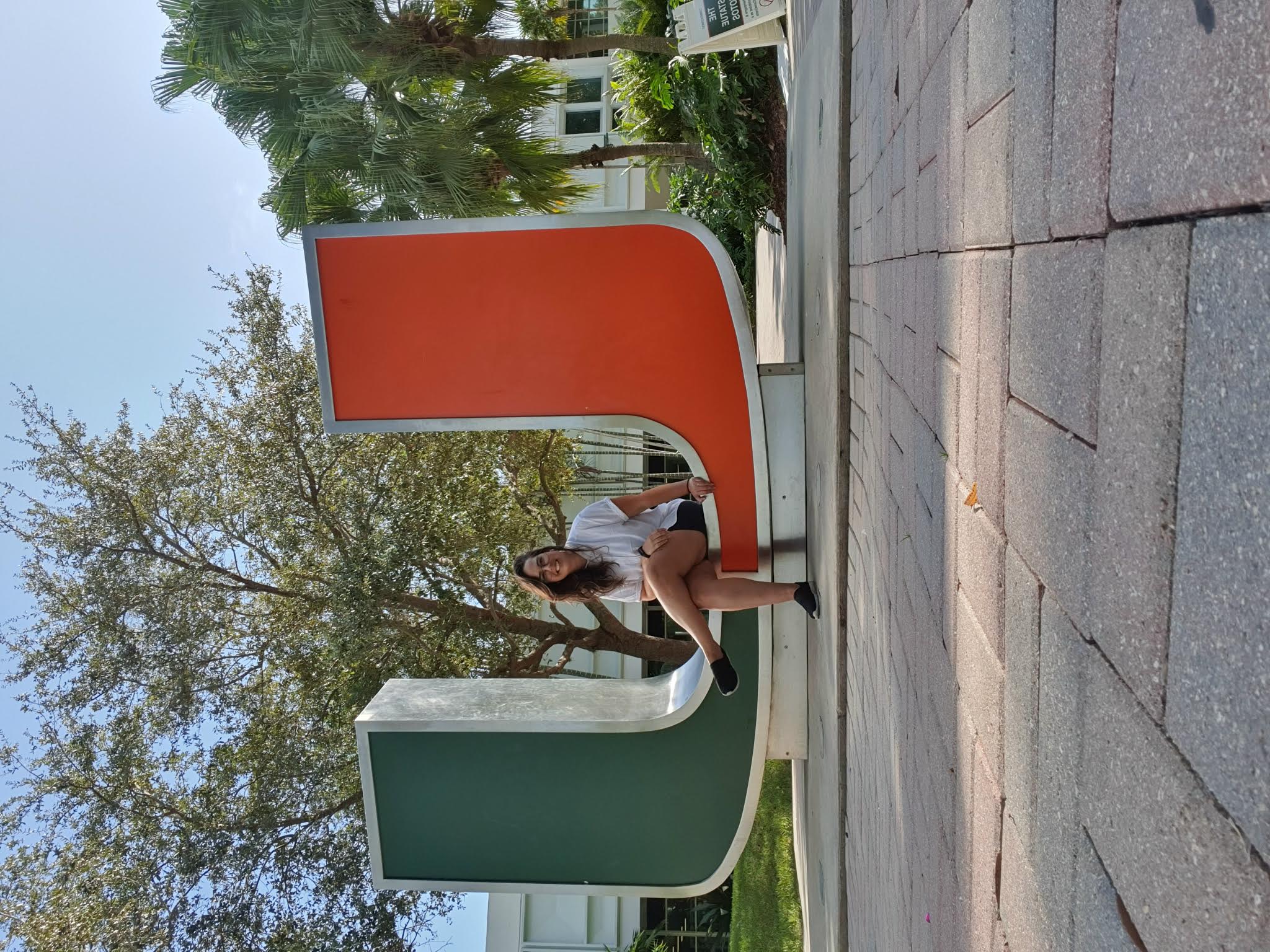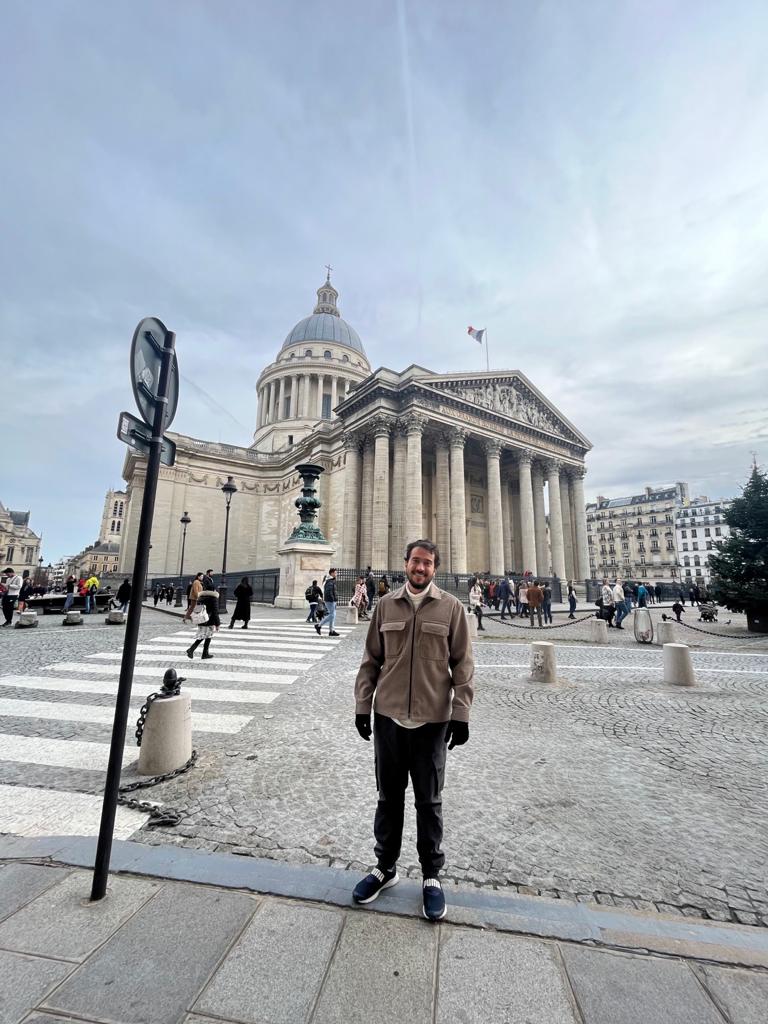PrInt Program offers experiences abroad in Sandwich Doctorate
Students go abroad to take sandwich doctorate in the second semester of 2022
 In the Sandwich Doctorate modality through PUCRS’s CAPES Program (PUCRS-PrInt) the PhD students experience internationalization for 6 to 12 months abroad. At the end of 2022, four students from different PUCRS’s Graduate Programs (PPG) took a sandwich doctorate in partner universities around the world.
In the Sandwich Doctorate modality through PUCRS’s CAPES Program (PUCRS-PrInt) the PhD students experience internationalization for 6 to 12 months abroad. At the end of 2022, four students from different PUCRS’s Graduate Programs (PPG) took a sandwich doctorate in partner universities around the world.
The PhD student from the Graduate Program in Law Beatriz Lourenço Mendes is at the University of Granada (Spain), developing her thesis at the Centro de Investigación de Derecho Constitucional Peter Häberle. Advised by professor Denise Fincato at PUCRS and co-advised by researcher Juan Francisco Barrilao in Granada, the student has contact with Spanish jurists to expand her analyses on digital marginalization in social rights, with a comparative study between Brazil and Spain. According to Beatriz, acting abroad allows for understanding the potential and limitations in rights and technologies in Brazil.
“The internationalization experience in Spain has been incredible. Getting to know a new culture, language, as well as professors from several places in Europe, is certainly one of the most enriching aspects of my education. PUCRS’s support in this journey is priceless, because the internationalization experience as a scholarship holder enabled the attainment of the material resources required for my research, just like it will enable me to, at the end, contribute with new perspectives to Brazilian law and to our society,” states Beatriz.
 Get to know the sandwich doctorate projects abroad
Get to know the sandwich doctorate projects abroad
The students from PUCRS are in different institutions abroad through the International Cooperation Projects linked to the Priority Themes from PUCRS’s CAPES-PrInt Program. Learn more about each PhD student’s project:
Virgínea Novack Santos da Rocha is a Graduate student in Languages and is at the University of Miami (United States) for the World in Motion theme. The PhD student is advised by researcher from the School of Humanities Regina Kohlrausch and is in Florida developing her studies in the fields of history of literature, history of women and feminism/gender studies.
“Developing my sandwich doctorate research in the University of Miami (Florida) has been one of the best experiences I’ve had in my academic life. Here, I have the support of my advisor, the professors and the research group in Digital Humanities, an area that is still underdeveloped in Brazil, which has allowed me not only to achieve my goals with the thesis (building and analyzing a collection of female Brazilian writers), but also to start thinking about a post doctorate project, which means to continue my academic journey expanding the research I am currently developing using the tools I’ve had access to here.”
Also a student of the Graduate Program in Languages, Jonas Kunzler Moreira Dornelles is taking his sandwich doctorate at Goethe-Universität Frankfurt Am Main, from Germany. The student is advised by researcher from the School of Humanities Pedro Theobald and develops his research on the Brazilian writer Dyonélio Machado and connections with the Frankfurt School.
 The student from the Graduate Programe in Computer Science Victor Flavio de Andrade Araújo is at the University of Sorbonne (France), taking a sandwich doctorate, related to the priority theme Technology and Biodiversity. Advised by professor Soraia Raupp Musse, the student is working in the French university’s Institute for Intelligent Systems and Robotics, co-advised by professor Catherine Pelachaud.
The student from the Graduate Programe in Computer Science Victor Flavio de Andrade Araújo is at the University of Sorbonne (France), taking a sandwich doctorate, related to the priority theme Technology and Biodiversity. Advised by professor Soraia Raupp Musse, the student is working in the French university’s Institute for Intelligent Systems and Robotics, co-advised by professor Catherine Pelachaud.
Victor is developing his research on human perception regarding virtual characters (from games, movies, TV shows, simulations etc.), with the purpose of making the users feel comfortable in several segments such as entertainment, health, industry. In Paris, the student visits the laboratory daily, where he meets with other researchers and professors, in addition to improving his communication in other languages.
“This entire experience has helped me improve my communication in English, socially as well as academically and professionally. Academically, I feel I am furthering my studies and having more ideas for my thesis. In addition to meetings with professor Catherine, I also talk to my colleagues about projects. I live near the university, so I see the Pantheon, the Marie Curie museum and observe the architecture every day, which only helps reflect on and inspire new ideas which reflect in my research,” que says.







